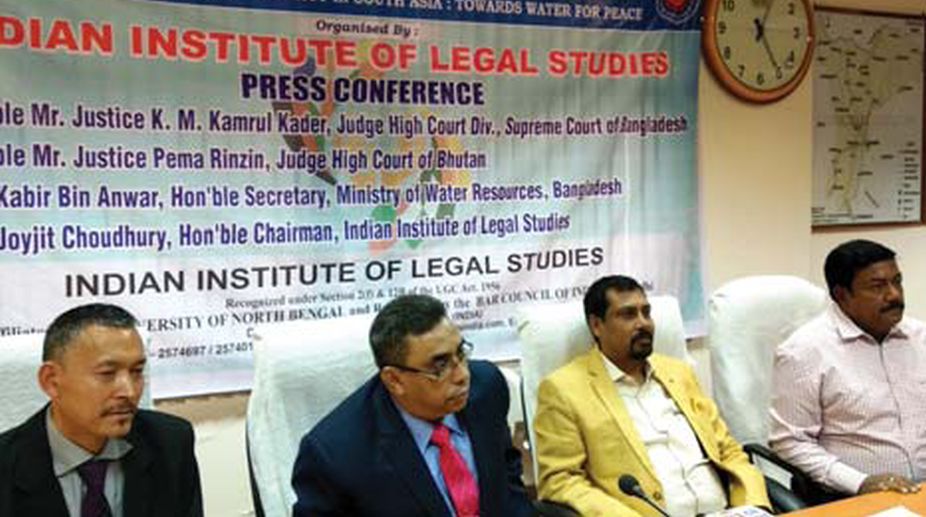Judge of the Supreme Court of Bangladesh, Justice KM Kamrul Kader, on Friday, said that the Indian Supreme Court’s verdict on the inter-state Cauvery water dispute would help other countries as they try to settle similar water sharing concerns.
Justice Kader is in Siliguri to attend a two-day 3rd ‘SAARC Law Conclave on Transboundary Water Conflicts in South Asia: Towards Water for Peace,’ being organised by the Indian Institute of Legal Studies (IILS).
Advertisement
He also sought India’s cooperation in settling water-sharing disputes. According to IILS chairman Joyjit Choudhury, Justice Priyasata Dep, the Chief Justice of the Supreme Court of Sri Lanka, will preside over the SAARC Conclave on Saturday.
Justice Kader from Bangladesh, the Secretary of the Ministry of Water Resources Department in Bangladesh, Kabir Bin Anwar, and Justice Pema Rinzin, a Judge of the Bhutan High Court, arrived in Siliguri on Friday and interacted with media persons here.
According to Mr Choudhury, Justices from other states, including the acting Chief Justice of Calcutta High Court, are scheduled to arrive for the Conclave on Saturday. According to him, three sub-themes will be discussed in the conclave–Governance of trans-boundary water disputes in South Asia, Hydropower generation in South Asia River System and its effects and river diversion and ethnic contestation.
Notably, there are no rules and laws internationally that can formulate peaceful settlement of water sharing between two countries. There is only a treaty between two counties for water-sharing, according to Mr Choudhury.
Speaking on the matter, Justice Kader pointed out the Helsinki Rules on the use of international waters and the Berlin rules on water resources. He also pointed to the interstate water sharing issues and the verdict of the Supreme Court of India. “Not only Bangladesh, but other countries will benefit from the Supreme Court’s recent verdict on the Cauvery water dispute,” he added.
“A total of 53 rivers enter Bangladesh from India. The number is almost one fifth of the total trans-boundary rivers across the world. There are three main rivers-Padma, Megha and Jamuna in Bangladesh,” Justice Kader said, adding, “The treaty over the Ganges between India and Bangladesh has been signed. But the Teesta water sharing treaty is still pending.”
Being a citizen of Bangladesh, I want to say: “We need cooperation from India that has been extending cooperation since our freedom movement and other countries like China in relation with the Brahmaputra basin. We need water for cultivation. Our only enemy is poverty. To sustain water is imperative for cultivation.”











